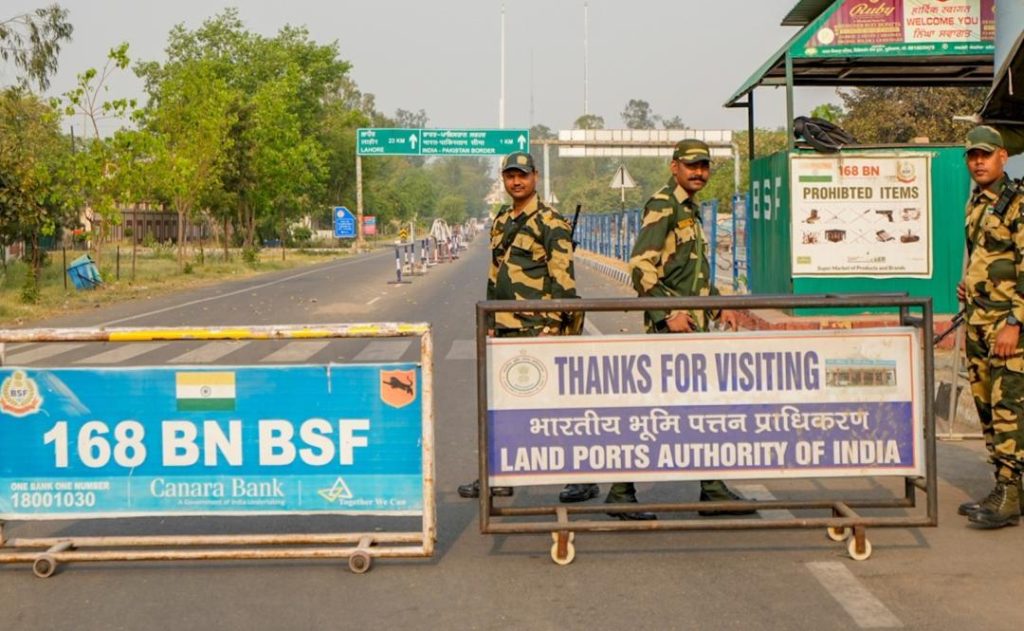
Attari-Wagah Border between India & Pakistan Completely Closed
In a significant development, the Attari-Wagah border between India and Pakistan has been completely closed, reported PTI on Thursday. This move comes in the wake of rising tensions between the two nations, which have seen a series of skirmishes and retaliatory actions in recent weeks. The closure of the border marks a major restriction on the movement of people between the two countries, with no person from either side crossing to the other side on Thursday.
The decision to shut the border was taken after Pakistan stopped accepting its citizens who were deported by India. This move was in response to the Pahalgam terror attack, in which 26 tourists were killed. The attack, which took place on October 11, was carried out by Jaish-e-Mohammed (JeM) terrorists, who have been banned by Pakistan.
The Pahalgam terror attack was a devastating blow to the people of India, who had been reeling under the impact of terrorism for years. The attack was widely condemned by governments and organizations around the world, with many calling for Pakistan to take concrete action against terrorist groups operating on its soil.
In the aftermath of the attack, India took swift action to deport Pakistani nationals who were found to be involved in the incident. However, Pakistan refused to accept these deportees, citing the fact that they were being sent without due process and without being provided with fair trial. This move was seen as a deliberate attempt by Pakistan to shield its citizens who had been involved in the attack.
The closure of the Attari-Wagah border is a significant escalation of tensions between India and Pakistan. The border, which is one of the most heavily used by traders and travelers between the two countries, has been the site of frequent protests and demonstrations in the past. However, the current situation is unprecedented, with both countries taking a hardline stance against each other.
The closure of the border is likely to have far-reaching consequences for trade and commerce between India and Pakistan. The two countries share a rich cultural heritage and have a long history of trade and economic ties. However, the current situation is unlikely to ease in the near future, with both countries refusing to back down from their positions.
In a statement, the Ministry of Home Affairs in New Delhi said that the decision to close the border was taken to ensure the security of Indian citizens. “The decision to close the Attari-Wagah border was taken to prevent any untoward incident and to ensure the security of Indian citizens,” said a ministry spokesperson.
The move has been welcomed by many in India, who have been calling for a tougher stance against Pakistan. “The closure of the border is a necessary step to ensure the security of our citizens,” said a spokesperson for the Bharatiya Janata Party (BJP). “We have been saying for years that Pakistan is a terrorist state and that it needs to be dealt with accordingly.”
However, the move has also been criticized by many, who say that it will have severe consequences for trade and commerce between the two countries. “The closure of the border is a short-sighted move that will only harm the people of India,” said a spokesperson for the Congress party. “We need to find a way to engage with Pakistan and to resolve our differences peacefully.”
In conclusion, the closure of the Attari-Wagah border between India and Pakistan is a significant development that marks a new low in relations between the two countries. The move is a reflection of the deep-seated mistrust and hostility that exists between the two nations, and it is unlikely to ease in the near future. As the situation continues to unfold, it remains to be seen what the long-term consequences of this move will be.






